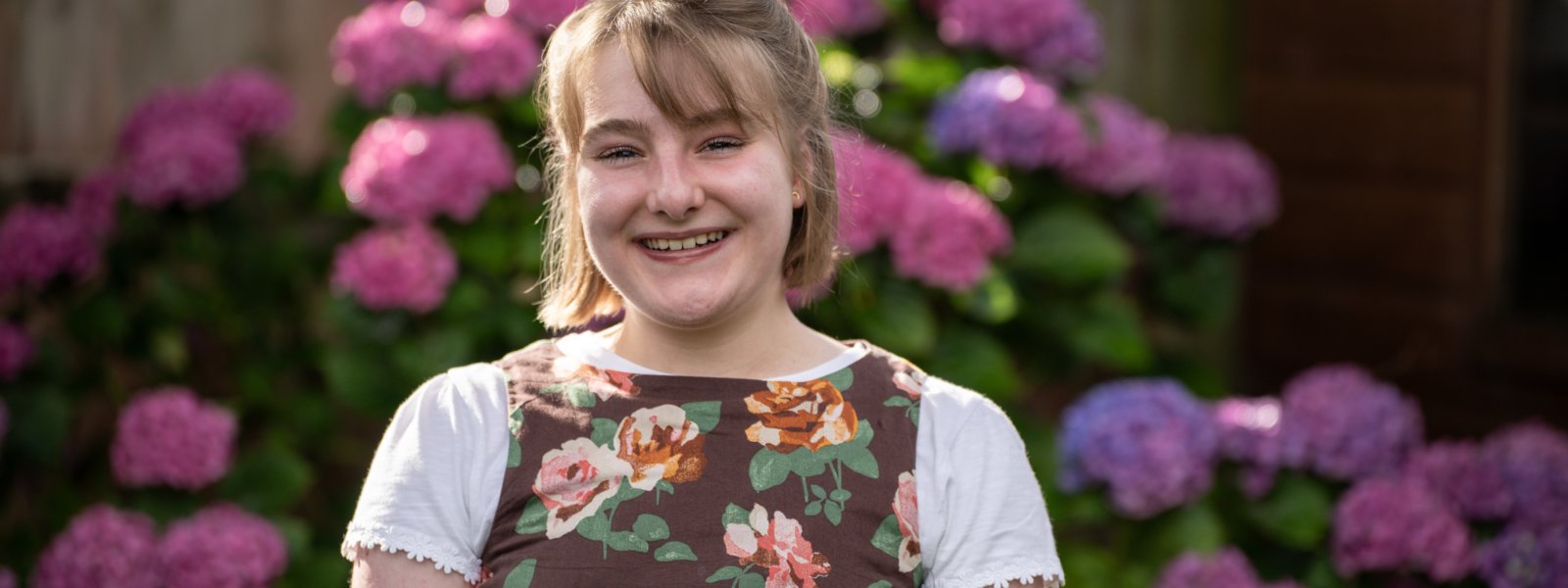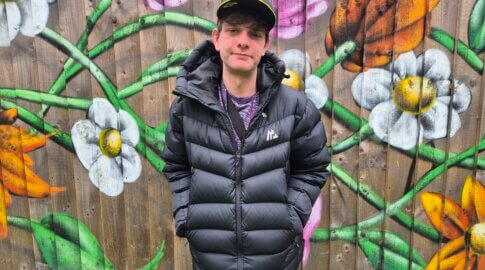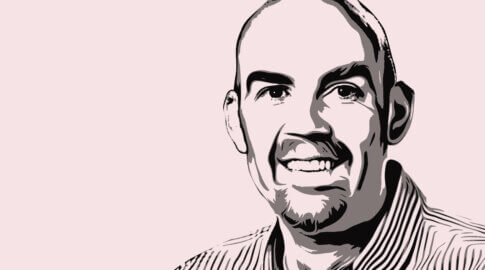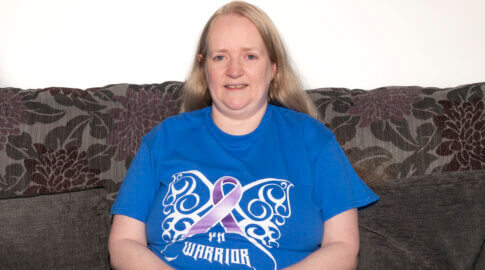“Transplant gives me the opportunity of a new life”
Luciana Pettitt (known as Annie) is 20 and lives in East Sussex. She was diagnosed with PH at the age of 15 and was placed on the waiting list for a double lung and heart transplant in February 2023. We spoke to Luciana and her father Mike in June 2023, to hear about the family’s experiences.
Annie
“I had been a relatively normal teenager but then I lost the ability to breathe and walk. It didn’t take too long to get a diagnosis because I got so ill so quickly, but there were a lot of A&E trips and a lot of GP and hospital appointments because no one believed I was ill.
Because I was a teenager it was assumed that I just had anxiety, and that was difficult.
I had seven months of screaming and crying at people – doctors, my parents, my school – saying ‘there’s something wrong but I don’t know what its is’. No-one was listening to me because people aren’t inclined to listen to teenage girls who are ill.
I was so unwell that I got diagnosed at the Royal Brompton Hospital [specialist PH centre] within half an hour of being there. They said, ‘we cannot let you leave this hospital because if you continue living without medication, you will die and you will die soon’.
For me, getting the diagnosis was a huge relief because it meant that someone finally listened to me. But it was also terrifying to realise that this was not something that was going to go away, and I would have it for the rest of my life.
I was started on Epoprostenol immediately and it was a very big shock to my body, so I was extremely unwell. I had a lot of pain, I had chronic migraines, and I was sick a lot.
At the time of diagnosis, there was talk of transplant in terms of ‘this is something that will happen in the future’. ButI didn’t know anything about organ transplant. I didn’t know anything about IV medication, and I didn’t even know what PH was.
A few months after I was diagnosed, I was placed on the transplant list for the first time, because I was really unwell. Great Ormond Street Children’s Hospital, where I was being treated, were really good about it.
They had induction days for all of the transplant kids, where they show you all of the equipment, operating rooms and recovery rooms, and you got to meet with the surgeons. I spent a week there, and they took me through everything I needed to know about lung transplant.
I was suspended from the list in September 2019, because I had started to improve, but at the beginning of this year doctors started talking about transplant again.
I had gone into heart failure in November 2022, and went onto a drug trial which didn’t help. I was extremely unwell, so I was placed on the list again in February of this year.
Knowing that the call could come at any time is stressful. But I’m more excited than anything, because transplant is a huge opportunity for health and for freedom.
My parents are my carers, but a transplant means I will be able to leave the house on my own. I will be able to swim, I will be able to walk, and I will be able to breathe properly and ride a bike.
My independence and my ability to exist as a teenager was entirely stripped from me when I got ill, and there was nothing I could do about that. A very difficult thing to deal with has been mourning the loss of the person I was, and also the future that I don’t get to have.
But transplant is an opportunity for me to be as healthy as I can be, and to have a really good quality of life.
Everyone else that I know has moved on with their lives. All of my friends have just finished their first year of university and I’m still at home. I didn’t do my GCSEs; I didn’t do my A Levels. I haven’t been a full-time student since I was 14.
I can’t do much at all anymore. My days consist of waking up, taking my medicine, and showering (which I can do on my own, but it is difficult).
I have to take multiple naps during the day because I get so tired, and I get a lot of pain as well. This has all got worse since I’ve become more unwell, and life is very exhausting right now. My wheelchair is really important because it means I can conserve my energy.
My life is spent at home with the dogs. We got Milo last summer and we got Digby at the beginning of this year. They’re both very good boys and they have made a world of difference to my well-being.
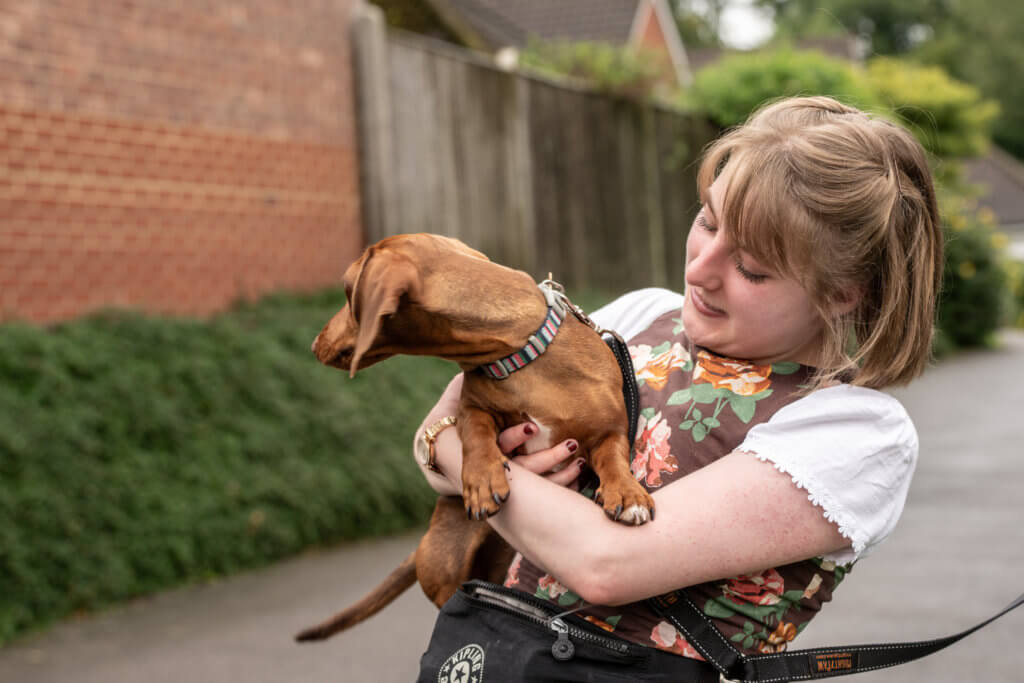
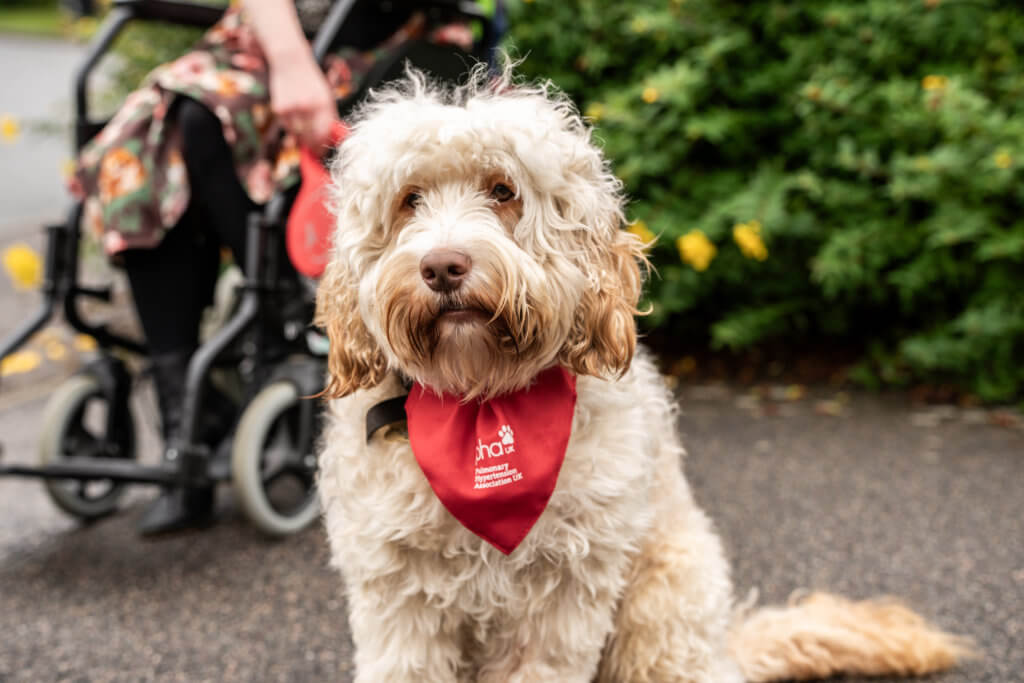
My friends are also incredible and always have been. They have stuck by me through this entire thing.
Spending time learning about PH gives me the freedom to be able to talk about my illness to medical professionals so that they can explain it to me, and I understand it.
The human body is fascinating, and I have always loved science and anatomy. I think being able to understand that makes it easier to cope because I can understand why my body does the things it does, and why my illness is there.
I can understand my symptoms, side effects and medicines because I have the medical knowledge to put context into the way I am feeling.
As a teenage girl, I’ve noticed a lot of ableism, because I am not what people’s definition of disabled is. But disability doesn’t look just one way.
I’ve been yelled at for using disabled access toilets, and people stare at me or make rude comments because I need a wheelchair.
I was once laughed at by a grown man at a train station because I had my ‘please offer me a seat’ badge. I was coming back home from a transplant appointment at the time.
I think it is really important for everyone to do their research on organ donation and why recipients need organs.
You hear about family members and friends who give kidneys to people they know, but what about strangers? It makes an unbelievable amount of difference.
Right now, my quality of life is low because I’m so unwell. I have reached the ceiling of care, so transplant is this huge thing.
It is absolutely terrifying, but I am looking forward to it because it gives me the opportunity of a new life.”
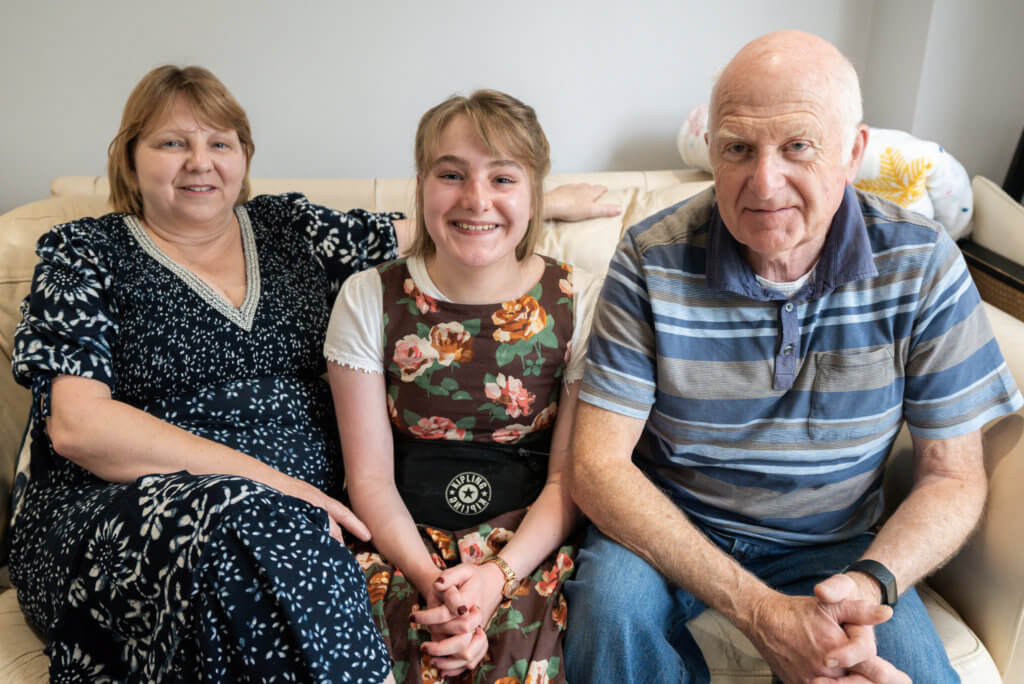
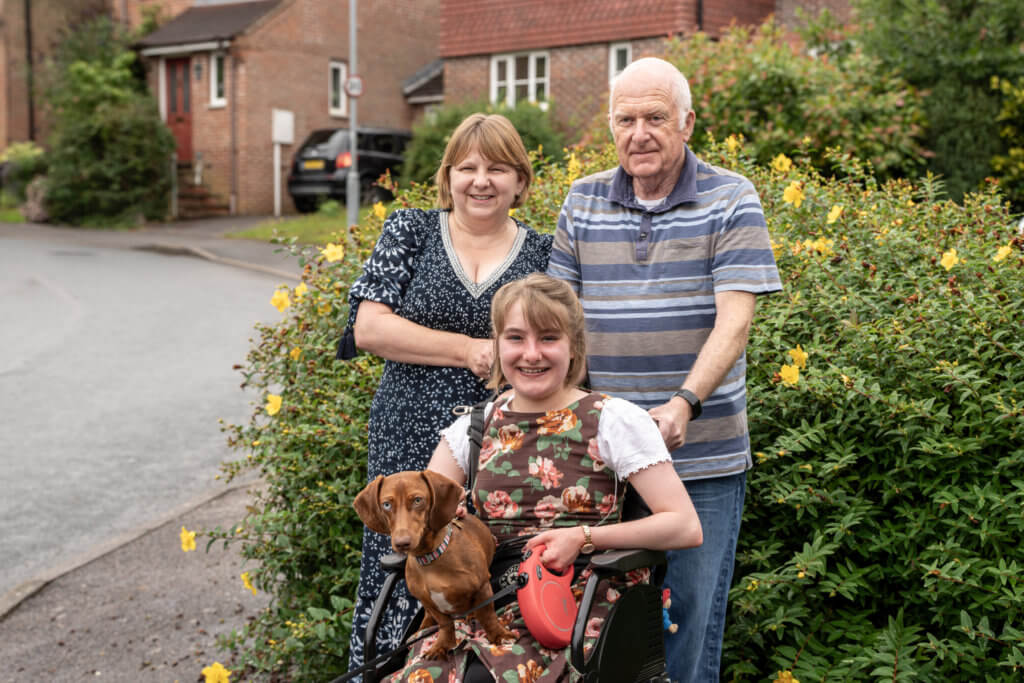
Mike
“The whole process has been very hard because Luciana was clearly unwell before the diagnosis. But her vital signs were normal, and she did not ‘look’ ill. That’s a huge issue.
Of course, as her parents we felt guilty after her diagnosis because you think ‘was this something we all missed?’
When we were given the diagnosis, I remember asking the consultant whether it was life-threatening, life-changing or life-limiting. ‘All three’, he said.
I understand that transplant is the only option for Luciana. There are risks, but this is our daughter who we love and cherish and always have done.
It’s such a huge undertaking, clinically and medically, but it is all to give her an extended period of life – of good quality.
Having conversations about organ donation is critical. We have been struck by the number of friends, and even neighbours, who have signed up to be organ donors since finding out about Luciana.
It’s an extremely difficult conversation to have with family members and friends but it’s a great gift to be able to give someone else the prospect of life.
We had a friend who was a police officer, sadly killed on duty, and his organs and tissue were used to help eight other patients. That’s amazing.
The key point in all of this is that potential donors need to talk to members of their family about this because when the time comes, it must be very stressful, and they will be asked for their consent too. That’s why they need to understand someone’s wishes.
At the end of May in the UK, there were only 11 people in Luciana’s position on the waiting list. I think the key message here is please decide to donate, but please also tell the rest of your family that these are your wishes.”
